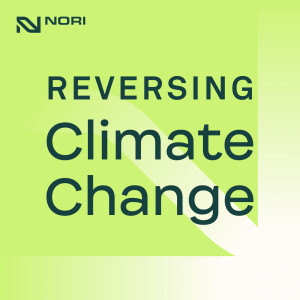
91: Love, Capital, & Regenerative Ag—with Dr. Philip Taylor of Mad Agriculture
 2019-09-10
2019-09-10
“As we fall in love with the places we depend on, it forces us … to use virtue in all of our transactions, business and otherwise. And when we start building in love and empathy and compassion and reciprocity into every transaction that we make, the world will inevitably become a more beautiful place and things like climate change will go away.”
Dr. Phil Taylor is the Cofounder and Executive Director of Mad Agriculture, a venture that aims to restore our relationship with Earth through the story, community and the practice of good agriculture. Mad Ag works on-the-ground with producers to design Regenerative Farm Plans, heal mismanaged landscapes, and help farmers and ranchers thrive—ecologically and economically. Phil is also a fellow at the University of Colorado, where he teaches The Future of Food in the Masters of the Environment Food Systems program.
Today, Phil joins Christophe and Alexsandra to explain climate change is a symptom of the deep disconnection between humans and our dependency on the Earth. He describes how Mad Agriculture was inspired by the poems of Wendell Berry, discussing the challenges the organization faces in calling for a radical reworking of the economy. Phil also offers insight into how the organization builds trust with growers and helps them break away from commodities markets. Listen in to understand how Mad Ag is catalyzing the transition to regenerative farming with a combination of capital and radical love.
Key Takeaways
[1:19] Phil’s path to reversing climate change
Desire to heal broken system (selves, land and relationships) Climate change = symptom of disconnection with Earth
[3:57] What inspired Phil to study soil science
Enthralled by Earth’s beauty, learn how it works Academic work not relevant to real world problems
[5:50] The origin of Mad Agriculture
Inspired by Mad Farmer poems of Wendell Berry Call to radical reworking of economy
[7:15] The greatest challenges facing Mad Agriculture
Global market forces drive destruction Hard to see system, takes courage to live outside
[11:43] What Mad Agriculture does
Help farmers thrive with regenerative ag (ecological + financial wealth) Holistic design optimizes carbon coming into system Provide access to community, money and markets
[18:13] How farmers can break away from commodities markets
Grow directly for brands Monetize ecosystem services
[21:29] How Mad Agriculture approaches growers
Build trust with farmers Understand every farm very different
[25:27] Why the transition to regenerative ag is slow
Difficult to break out of current system Culturally less apt to take risks
[28:23] How Phil thinks about catalyzing change
Offer examples of respected farmers (e.g.: Steve Tucker) Tour diversified land, innovative practices
[31:44] Mad Agriculture’s theory of change
Help people fall in love with their place Develop inherent sense of reciprocity Diversity leads to resilience (markets and climate)
[33:25] Phil’s insight around the grain revival
Staple crops that enrich earth rather than deplete Rising wave of re-regionalization of rural areas
[37:42] The new agrarian culture
Hyperconscious of inescapable bond with Earth Understanding of dependence leads to affection
[39:39] What’s next for Mad Agriculture
Work with Boulder County farmers transition to regenerative Bring 12,500 acres to Nori marketplace Build Perennial Fund (capital for transition to organic)
Connect with Christophe & Alexsandra
Nori
Nori on Facebook
Nori on Twitter
Nori on Medium
Nori on YouTube
Nori on GitHub
Nori Newsletter
Email hello@nori.com
Nori White Paper
Subscribe on iTunes
Carbon Removal Newsroom
Resources
Mad Agriculture
Email brandon@madagriculture.org or philip@madagriculture.org
The Mad Farmer Poems by Wendell Berry
Carbon Cycle Institute
Fibershed
Marin Carbon Project
The Biggest Little Farm
Naturally Boulder
Gabe Brown
SoilHealthU
Regen Way Walk
Propagate Ventures
Steve Tucker
Green Cover Seed
The Land Institute
Robyn O’Brien
rePlant Capital
Hayden Flour Mills
Bluebird Grain Farms
Camas Country Mill
Anson Mills
GreenBiz
Circularity 19
Charles Eisenstein
It All Turns on Affection: The Jefferson Lecture and Other Essays by Wendell Berry
COMET-Farm
More Episodes
Create your
podcast in
minutes
- Full-featured podcast site
- Unlimited storage and bandwidth
- Comprehensive podcast stats
- Distribute to Apple Podcasts, Spotify, and more
- Make money with your podcast
It is Free
- Privacy Policy
- Cookie Policy
- Terms of Use
- Consent Preferences
- Copyright © 2015-2024 Podbean.com






